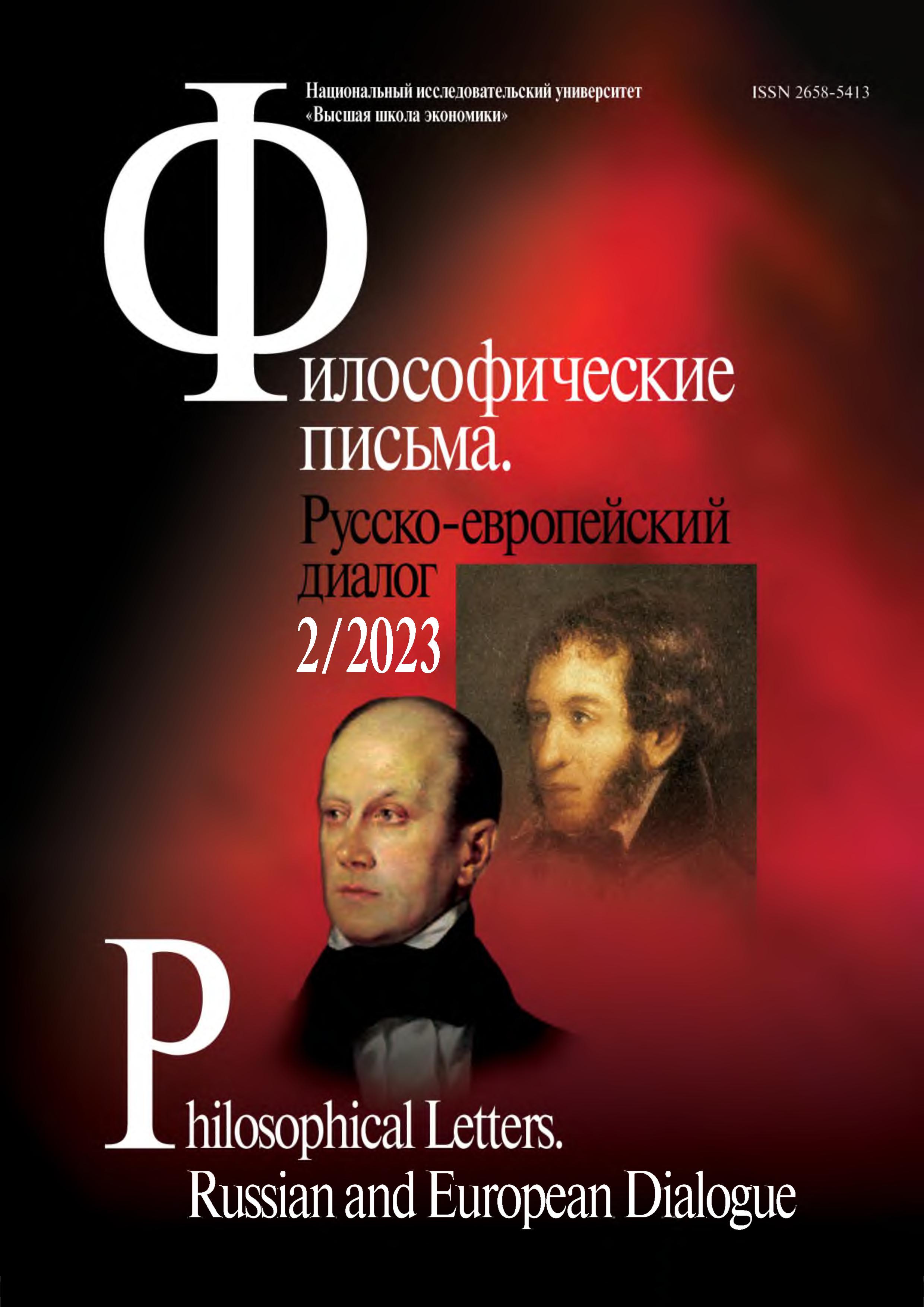'...If there is anything valuable and that can count on success, then this book': The unknown letter from B. P. Vysheslavtsev
Abstract
In the 1920s, three alternative strategies of behavior arose in the Russian diaspora, designed to determine the future path of existence for emigrants. The first of them assumed the rejection or minimization of cultural contacts with the countries of dispersion in order to directly preserve and reproduce high samples of pre-revolutionary culture. The second set as its task the earliest possible renunciation of existence in the diaspora and integration into the countries of residence. The third strategy, on the contrary, made it an indispensable condition for the preservation of the cultural heritage of its constant dialogue with Western culture. The first group was the most numerous, which influenced all diaspora associations, including those focused on alternative strategies. The representative of the third group, the philosopher and public figure Boris Vysheslavtsev, did not escape its influence. In 1929, while editor of the YMCA-Press, in a letter to YMCA Managing Director Paul Anderson, he initiated the publication of “The Way of a Pilgrim” to His Spiritual Father, a popular nineteenth-century religious essay on prayer. According to the philosopher, the book contained cultural codes capable of reviving the pre-revolutionary heritage. At the same time, Vysheslavtsev analyzed the book from the point of view of his scientific interests related to the use of methods of psychoanalysis in relation to religion. In the future, the thinker lost interest in “The Way of a Pilgrim”. Except for one mention in the monograph “Ethics of Transformed Eros”, he did not refer to them. At the same time, the presence in the subsequent work of the philosopher of criticism of the West and the opposition of Russian culture to it allow us to assert that Vysheslavtsev has moved from among the supporters of the dialogue between Russia and Europe to conservative emigrants. The article is based on archival sources.

